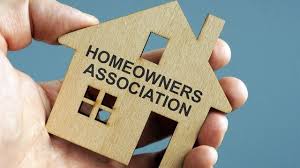Pros and Cons of a Homeowner’s Association

Thinking about buying a home in a community with a homeowner’s association (HOA)? Before you make an offer, make sure you understand how these organizations work.
An HOA is run by a Board of Directors (homeowners elected by other residents), and it’s the responsibility of the association to set rules and regulations for the neighborhood. These organizations exist in single-family home communities, condominium communities, and townhouse communities. So before you begin looking for a house to buy, you need to consider whether you’re willing to purchase a property in a neighborhood with an HOA. There are advantages to an association, as well as disadvantages.
Pros of a Homeowner’s Association:
1. The HOA Manages the Commons Areas
One benefit of living in a community with an HOA is that the organization manages the commons areas. This includes the landscaping, the pool area, playgrounds, barbecue areas, and community centers.
You can utilize and enjoy these spaces and not worry about the upkeep. Some HOAs also maintain the landscaping in front of each unit, although homeowners might be responsible for the landscaping within their fenced backyard.
2. The HOA Maintains the Home’s Exterior
Some HOAs also care for the exterior of homes within the community. This includes repairing or replacing siding, power washing, and maintaining the home’s roof and fence.
If you purchase a property within an HOA community, you could potentially save thousands of dollars during the years that you live in the home. Keep in mind that there are limits to what an HOA will do with regard to the property. You’re typically responsible for any repairs within the walls of your home. And depending on your association, you may be responsible for replacing your own windows and doors.
3. The HOA Mediates Problems Between Neighbors
A homeowner’s association is also useful when problems arise between neighbors. The association can act as a mediator if you observe another resident violating a rule or regulation. Rather than discuss the issue with your neighbor and risk tension, you can contact your homeowner’s association and they’ll contact the neighbor on your behalf.
Cons of a Homeowner’s Association
1. You Have to Pay Monthly HOA Fees
Because the HOA handles the upkeep of the commons areas and the exterior of homes, homeowners who live within the community must pay HOA fees.
These fees vary depending on the amenities within the community, but can start as low as $100 a month and go up to several hundred dollars a month. And unfortunately, HOA fees aren’t written in stone, so they can increase from time-to-time. The association may have to raise the monthly fee if it doesn’t collect enough funds to maintain the community.
2. Defaulting on HOA Fees Has Repercussions
Don’t downplay the importance of paying your HOA fees. Depending on your state, defaulting on HOA fees could put you at risk for foreclosure. But even if your state doesn’t allow foreclosures under these circumstances, the amount you owe will accrue until you pay.
It’s crucial that everyone living in the community pay their fees. If the HOA is unable to collect enough money from residents, this can result in insufficient funds for maintaining the property. As a result, the community might have to get rid of its property manager, and the appearance and condition of the community can go downhill. This can have a negative impact on property values.
3. The HOA Imposes Rules and Regulations
Paying HOA fees might seem like a minor inconvenience, especially if the monthly fee is affordable. But even if you’re okay with the fee, understand that the HOA sets rules with regard to the appearance of your home. They decide what color you can paint your front door or shutters, as well as the type of front door and windows you can have. The association can even place restrictions on outside decor and the number of vehicles you’re allowed to park in the community. Violating the community’s rules and regulations could result in a fine.
Homeownership is a big accomplishment, but maintaining a property can consume a lot of your time and energy. Purchasing in a community with a homeowner’s association allows you to reap the benefits of homeownership while minimizing the amount of time you spend on maintenance.
See more at…https://www.cherrycreekmortgage.com/blog/article/pros-and-cons-of-a-homeowners-association
P.C. realtor.com